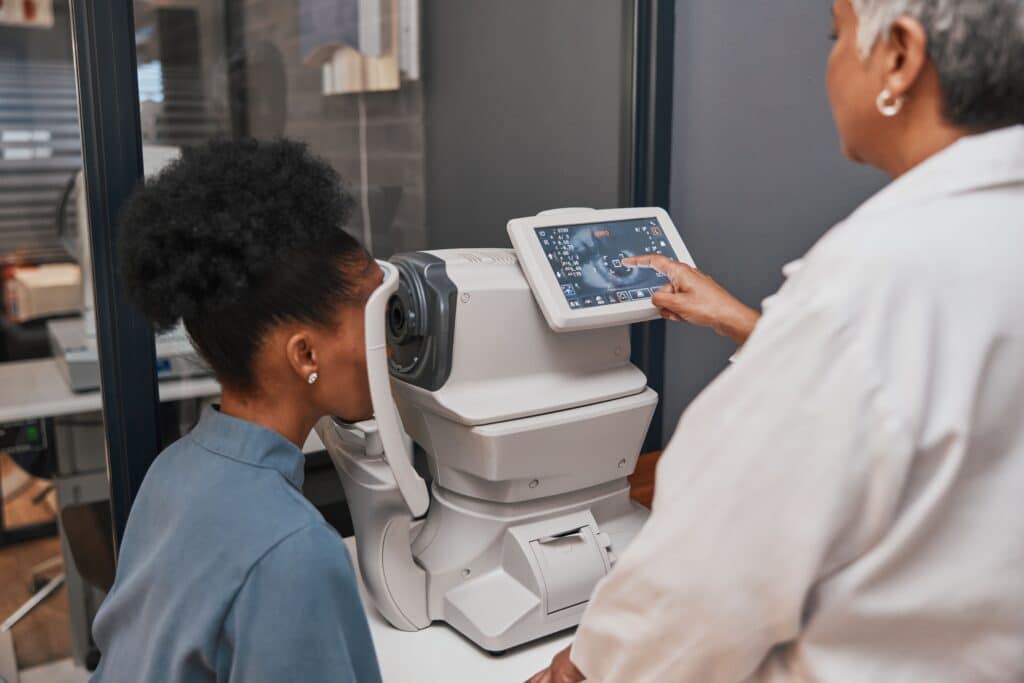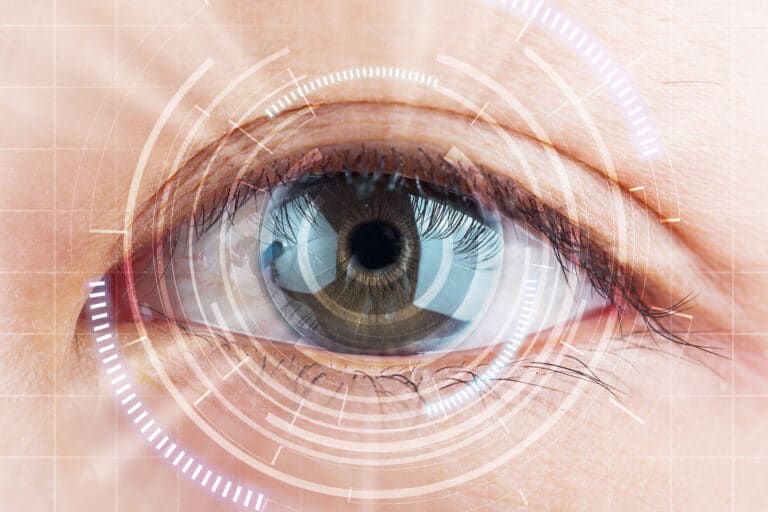5 Signs It’s Time to See Your Eye Doctor
How often do you see your doctor? Most of us have different medical professionals who manage different aspects of our care. Your eye doctor or ophthalmologist is your eye care expert. At Vold Vision, eye doctors provide routine care, perform vision correction procedures, and take care of your eyes in many other ways. As with other doctors, you should plan to see your ophthalmologist for regular eye exams, but also see them if you encounter issues or have concerns.

What is an Eye Doctor or Ophthalmologist?
An ophthalmologist is a medical doctor with a specialization in eye care. They may specialize in certain fields, such as a specific type of surgery, or may practice as general eye doctors. You might see an eye doctor for:
- Routine eye exams
- A prescription for corrective lenses
- Laser vision correction
- Eye surgeries such as cataract surgery
- Chronic eye conditions such as glaucoma
- An eye injury or infection
How often you should see your eye doctor varies depending on your age, existing health conditions, and risk factors. Everyone should see an eye doctor every year or two, although some people should have more frequent visits.
5 Signs It’s Time to See Your Eye Doctor
When something changes with your vision, we strongly recommend that you see your eye doctor as soon as possible. Waiting to see if a problem goes away could give it time to get worse. Fortunately, prompt diagnosis and treatment make many eye conditions manageable. You should call and schedule an appointment if:
Your Vision is Blurry or Has Changed
Blurry vision that appears gradually over time can be the result of natural changes in your eyes, but sudden changes can be a reason for concern. If you wear glasses or contacts and your vision is blurry, you may need a new prescription. If you are in your 40s and noticing blurriness, especially when trying to read, you may be experiencing presbyopia, a treatable age-related change.
In any case, there is no need to be bothered by blurred vision. Schedule an appointment and learn about the many options for vision correction or other treatments. Clearer vision is within reach for almost anyone, even those who are not candidates for traditional LASIK.
Request a Consultation
We’d love to help you get all the information you need in order to make the best choice for your eyes. Request a consultation today! Our staff is available and happy to answer your every question.
Your Eyes are Irritated or Sensitive
Your eyes may be red, itchy, watery, or sensitive for many reasons. Allergies are among the most common causes, but you may be exposed to other airborne irritants, have dry eyes, or spend a lot of time looking at a computer screen. All those conditions are treatable, so if your eyes bother you, an eye doctor can help you find relief.
Your Vision is Cloudy or Hazy
If you notice that your vision seems hazy, you see a glare around lights, and colors start to look less vivid, you may be developing cataracts. While these are not dangerous, they will continue to become cloudier over time. While they are very common as we age, cataracts can affect people of all ages. Fortunately, they are treatable with a simple procedure.
You are Over the Age of 40
While nothing dramatically changes in your eyes at the age of 40, it should serve as a reminder that if you have not seen your eye doctor in a few years, your eye exam is overdue. This age is also a good time for your eye doctor to begin monitoring you for age-related conditions like cataracts or presbyopia. You are also more likely to develop medical conditions affecting your eyes, such as type 2 diabetes, as you age.
You are at a Higher Risk
If you have certain medical conditions such as diabetes, you are at a higher risk for eye problems than most people and should see your eye doctor as often as they recommend, which may be once a year or more often. People with a family history of certain conditions are also at higher risk and should be monitored more closely. If your ophthalmologist determines you are at high risk, they will set you up with scheduled appointments for regular monitoring.
Take the Next Step
You’ll benefit not only from the latest technologies available but also from our compassionate, personal approach. You’re more than a patient at Vold Vision in Bentonville and Fayetteville. We strive to make you as comfortable as possible while evaluating the optimal treatment plan just for you. We invite Fayetteville, Rogers, Bentonville, and Springdale residents to contact us today for a consultation at (479) 755-4510.


